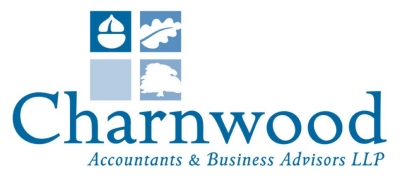Changing Accountant is a big decision, we often see that clients are incredibly loyal to their advisor who may not be giving them the best service. If you are thinking about changing advisor, here are some things to think about.
1) How is the firm structured and who will be your main point of contact?
- Does it have a high proportion of qualified staff or is mainly junior staff undertaking work?
- Is it a partner coming to meet you and then passing on the work to a less experienced /qualified member of the team?
- Will you get a different person dealing with your affairs each year asking the same questions or will they build a continuous staff relationship.
2) Is the firm a qualified practice?
Unfortunately the term “Accountant” is not protected so anyone can setup their own Accountancy practice. You can look for quality by checking the firm is registered with the ACCA (Association of Chartered Certified Accountants) or the ICAEW (Institute of Chartered Accountants in England and Wales) or for tax advise the CIOT (Chartered Institute of Taxation). The following letters donate an individuals’ qualification ACA, FCA, ACCA, FCCA, CTA.
3) Do they specialise in services or sectors?
Many firms will specialise in industry specific sectors and undertake work which is geared to those sectors, for example, High Tech businesses can get significant tax advantages from Research and Development tax credits.
Solicitors practices have specific rules to which they have to comply, for these businesses it is therefore important that they have an advisor who understands these particular rules and can adapt quickly to changes in legislation.
4) Are they financially secure?
You would think the last type of business to go bust would be a firm of Accountants, unfortunately over the last few years there have been a number of high profile cases as well as smaller firms going into administration. Therefore if you have access to a credit checking service use it to check the financial security of your advisor as the last thing you want is to find a new one when you’re not looking.
5) Don’t become a number, become a client.
When you meet with Accountants, if you meet with a salesman who is not an accountant it’s likely you will become a client purely to fulfil their growth plans. It’s important to work with someone who understands you and your business. Your relationship with your accountant should last for generations, therefore it’s important to make the right choice.
6) Is it difficult to change accountant?
No, all you have to do is to inform the outgoing advisor of your decision to change, the new advisor will take care of the rest.
So long as the outgoing advisor is registered with the ACCA or the ICAEW they have strict guidelines that they have to follow in provided information to the new advisor.
7) Do they have any CTA’s (Chartered Tax Advisor) working for them?
Unlike what HMRC tell everyone, tax is very taxing, tax rules are incredibly complex, which most accountants will have a basic understanding of tax law, it is important to make sure that this is backed up by high quality tax advisors.
8) Is tax and accounting work split?
Many larger firms will departmentalise meaning that Accounts work is done by one team, audit another and tax another. This means it can be very difficult to get a personal service, you may also lose out on opportunities which can be spotted by one person who has in-depth knowledge of your business.
At Charnwood all of our clients have a partner work closely with them and a client manager who will be qualified and multi-skilled. These are backed up by 3 CTA’s.
9) Is location important?
Location has become less important over recent years with advances in technology, however, if you do need a face to face meeting it’s probably not going to work if your accountant is in Portsmouth and your business is in Edinburgh.
10) What services do you need and how much will the charges be for them?
Most accountants will try and do everything for a business including payroll, bookkeeping, management accounts, statutory accounts , tax work and more. Question whether this is really the best option, it might be that you can get a better service, independent advice and value for money by using a couple of providers, perhaps your accountant an introduce you to some. Or alternatively you might like the simplicity of having it all in one place.
A key aspect of changing accountant is clearly price, whilst many Accountants will give an indication of price in a meeting is this a fixed fee? If it is what are the parameters of it being fixed, what can they charge extra’s for etc. Also think about payment terms, will the Accountant spread the cost over the year to assist with your cashflow?
If you would like to discuss any of the above or to see how Charnwood Accountants builds long standing relationships with its clients please do not hesitate to contact Chris Hutton.
